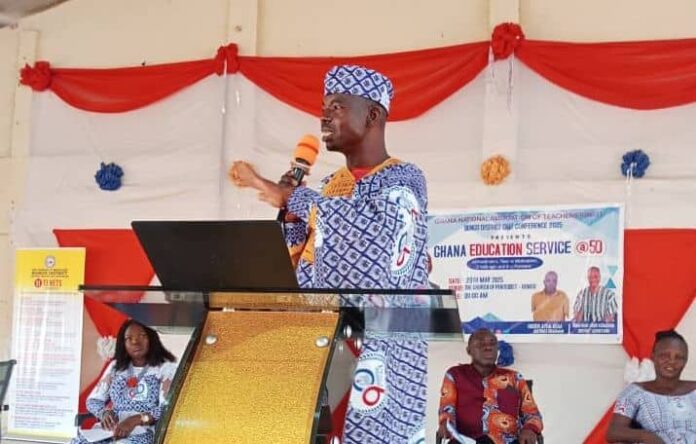A financial accounting lecturer at the Bolgatanga Technical University Awineyesima Abiire is advocating the incorporation of financial management courses in teacher education curriculum.
This move, the lecturer believes, will help teachers better manage their meagre earnings and resources.
Awineyesima Abiire said most teachers in the country earn peanuts and badly manage the little they earn, leaving them impoverished and unmotivated and in some cases, mentally destabilized so much so that it affects the quality of their delivery.
He believes financial literacy will ensure educationists are financially stable despite their little earnings and called for financial literacy courses to be introduced in teacher training institutions.
“Liaising with curriculum development actors to add personal financial Management as a course of study to help potential teachers should be diligently and dutifully pursued. Majority of teachers do not earn so much but much of the little earnings is not spent well.”
Awineyesima Abiire was speaking as a keynote speaker at the 50th anniversary of the Ghana Education Service and the 7th GNAT Quadrennial District Delegates Conference in Bongo.
Abiire argued that the late introduction of formal education in the extreme North of the country created literacy gap and that poor quality education was widening that gap.
He identified poor remuneration and lack of motivation as factors impeding of education in the country.
He said while it is important that teachers better manage their finances, it is even crucial that the state improves teachers’ conditions of service including raising their pay, instituting a health insurance scheme that covers severe health conditions and enhancing their pension schemes.
Abiire also urged unity among teachers in order that they are able to demand their fair share of pay in unionism and with maximum pressure.
“The story of Akatawigile (snail) and why Frafra population ‘taboos’ it is a testament that GNAT/GES, with unity, can heal members of economic depression and also bolster academic performance. Thus, as oxygen is necessary to the lungs and proper nutrition to the body, so is unity among members a vital component against further marginalisation.”




